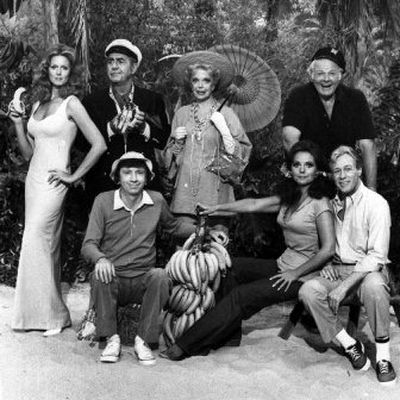Fading away

Don’t remember much about high school biology or physics. Couldn’t tell ya how to compute a calculus problem.
But, for the love of Will Smith, the theme song to “The Fresh Prince of Bel-Air” remains fresh in the mind.
Smith’s catchy rap opened each episode of his hit ‘90s sitcom, in which he starred as a street-smart teen from Philly who moves in with wealthy relatives. A whole generation knows it by heart – that, and the “Saved by the Bell” song.
TV themes – from “The Beverly Hillbillies” to “The Brady Bunch” to “Cheers” to “Friends” – conjure up memories of cozy nights, childhood bliss and a universal nostalgia for bygone days.
But today, they’re doing a fast fade as the networks crunch their programming budgets.
Are they about to join the variety hour in the TV graveyard?
“It’s a rarity today,” TV historian Tim Brooks says of the catchy, tuneful opening. “It’s kind of like the Broadway musical producing hit songs – it just doesn’t do that anymore.”
Back in the day, even into the ‘90s, shows usually had a “main title” – a 40- to 60-second opening montage that introduced the cast, says Jon Burlingame, author of “TV’s Biggest Hits” (Schirmer Books, 1996).
Songs summed up what a show was all about, whether spinning the tale of how a group of wacky castaways ended up on “Gilligan’s Island,” telling how a spunky single career woman was “going to make it after all,” or describing why six touchy-feely Manhattan singles were there for each other.
But now many sitcoms and one-hour dramas are dropping that device. They dive straight into the action, sometimes flashing the show’s title or logo at various points throughout an episode.
ABC’s twisty drama “Lost” begins after a teaser, which touches on what happened in previous installments and cuts to a black screen at a crucial plot point. A white “Lost” logo swirls into view. Eerie music plays. The whole thing lasts about five seconds.
“That’s not a theme,” laments Burlingame, who longs for the urgency of the “Mission: Impossible” score.
“Almost all shows have music, but it’s generic, it’s scene-setting, it’s short,” says Brooks, who estimated that fewer than 10 percent have “traditional” themes that set up the show.
Networks don’t have time for that – and neither, prevailing TV thinking goes, do the country’s couch potatoes.
“Producers feel, rightly or wrongly, that that interruption, if you will, is going to lose viewers,” Brooks says.
“I think one of the things that has squeezed themes out is this relentless kind of move toward tightening everything, making it go right from joke to joke, from action to action, from shootout to shootout, so that you won’t press the dreaded remote control.”
Tara Ariano, co-founder of the blog Television Without Pity, isn’t sweating it. She thinks a “full-on opening credit (and) theme song is kind of a waste, from a business perspective.”
“The networks sort of assume we watch the show, so we don’t need to have the premise explained to us each week,” she says. “In the era of the DVR, half the people watching the show are just fast-forwarding that anyway.”
Another trend – which harks back to the late ‘80s-early ‘90s fave “The Wonder Years” and the more recent “Dawson’s Creek” and “Laguna Beach” – is the use of music by both established and new recording artists as a theme in the main title as well as a device within the show.
“Increasingly, it’s not music scored for the show, it’s pop songs pasted into the show,” Brooks said.
CBS’ “CSI” opens with the Who’s “Who Are You?” Gavin DeGraw’s star rose after his radio-friendly single “I Don’t Want to Be” debuted as the theme to the CW’s “One Tree Hill.”
And the Fray was, well, just a band on the fringe until “Grey’s Anatomy” and others played their songs to underscore dramatic scenes and montages.
All of this makes Jesse Frederick-Conaway, who composed the music to G-rated sitcoms such as ABC’s “Full House” and “Family Matters,” a little sad. There is, he thinks, “this desire to be super-hip.”
“Now, the music director is sort of the composer,” he said. “It’s a different kind of deal.”
Burlingame, citing the great intros of award winners such as NBC’s “The West Wing” and HBO’s “Six Feet Under,” is confident the theme – lyrical, instrumental, whatever – will make a comeback. He’d rather see more original music, but he’ll take licensed material if it’s good.
“Some producers, I think, want to make a statement, in terms of imagery and music,” he says. “It depends on who you get.”
Will Smith, back in the ‘90s, made a hip-hop statement of his own while advising fans to “just sit right there/I’ll tell you how I became the prince of a town called Bel-Air.”
But, in this fast-forward TV world, would they still listen?